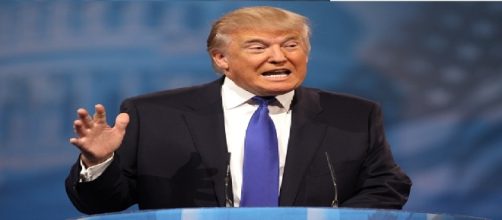In June, President Trump withdrew the United States from the Paris Climate Agreement, a bold measure given he is the only international leader to have done it so far. He argued that it was killing jobs at home, something the Republican wanted to change when he became president.
But what is happening in the United Kingdom proves why President Trump was right to withdraw from the agreement. The British Government has issued a diesel and petrol ban on all UK vehicles by 2040. Plans are being issued to create 10 new power stations to cope with the expanding "electric revolution." Motoring experts are already critical of the policy, arguing it will place unprecedented strain on Britain's National Grid.
Britain could become reliant on imported electricity
Both the AA, an emergency breakdown service in the UK, and Which? Car magazine have warned that electric cars are more expensive and less practical. A National Grid report stated peak demand for electricity could add around 30GW to the current peak of 616GW, marking a 50 per cent increase. Britain could become reliant on imported electricity due to this policy.
According to the European Union's emission standards, 81 major British roads in 17 towns and cities are about to breach the trading bloc's guidelines. Yet electric cars could take an average of 12 hours to charge. How can British motorists possibly cope with this if they need to drive to work the following morning and do not have time to recharge their vehicle the night before?
Earlier this month, France's environment minister, Nicholas Hulot, announced a five-year plan to achieve the same goal.
The state does not know best
Yet what makes these two governments' policies so concerning is that they are typical of a statist approach to environmentalism and how obsessed Western nations have become with climate change.
It was the innovation of car companies that enabled people to be provided with the choice of purchasing an electric vehicle originally. What the decisions of the British and French governments do is that they take away people's right to choose what type of car they wish to drive. The state does not know best when it comes to free choice; only a free market society does.
This article does not argue that nothing should be done to cut greenhouse emissions, such as using cleaner fuel and reduce pollution. If there are cost-effective measures to achieve this aim, they should, by all means, be encouraged. But not at the expense of governments restricting business activity and crippling them with taxes to do so. Education and media awareness are the keys to combating pollution. Individuals and businesses should be provided with the freedom to invest in greener technology to generate fuel.
People do not need the state to tell them they need to stop using petrol cars by a certain year. These types of targets are impractical. President Trump is the only one so far to realize this.


